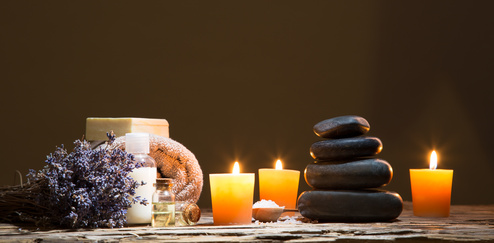Who couldn’t do a better job relaxing? Probably all of us! And that includes kids, teens, and adults alike. Our daily lives have gotten so fast paced and stressful that many of of need to pay attention to having a little more balance, some time to stop, notice, and smell the roses, so that we can reflect on and appreciate our lives. Making the time to relax does a mind and body good. Here are the top ten calming strategies I have found useful for myself and in my practice. You definitely don’t need to do them all, just test them out and see which ones best fit your personality and lifestyle.
1. Diaphragmatic Breathing. Dona’t underestimate the power of the breath. When we are feeling stressed, we often don’t realize that our breathing tends to become shallow. We basically are not using our full lung capacity to breathe. When we take full, slow, deep breathes we completely fill our lungs with air. This allows the maximum amount of air and oxygen to enter our bloodstream, which travels around our bodies and to our brains. Oxygen is good for our brains because it helps us think more clearly and rationally. Oxygen is good for our muscles because it helps us feel relaxed. Overall, deep breathing is a very good thing.
2. Progressive muscle relaxation. This great exercise has you slowly and systematically go through your basic muscle groups from your hands, arms, shoulders, stomach, legs, feet, head, and face and has your practice tensing and relaxing each muscle group one by one, then lastly all together. This helps you increase your awareness to where in your body you specifically hold your tension. Who wouldn’t get exhausted by holding their muscles tight all day and night? When you know where you hold your tension, you can release it, giving yourself more energy.
3. Art. Any kind of art will do here. If you have creative side, art is a fabulous outlet for all emotions. Drawing, painting, sketching, ceramics, clay, even play doh can all be great forms of artistic expression that enhances relaxation.
4. Music. Music is good for the soul. It has a regenerative aspect like nothing else and can transport you to places far away and times long ago. Generally, relaxing or happy types of music help induce relaxation, but if heavy metal is your thing, go for it.
5. Exercise. While exercise may seem like the last thing you want to do sometimes, especially if your tired and burnt out, it may be one of the best things to regularly do for yourself. The health benefits from exercise are significant and longstanding. Choose whatever form of exercise you like. Whether its a long run, a hike, skiing, a bike ride, or walking your dog, get your heart rate up and experience the benefits.
6. Yoga. Yoga continues to gain popularity and there are many different types to choose from. You may prefer a more intense work out type of yoga with the heat turned up or something more chill and meditative. All forms are good for you and help with breathing, stretching, balance, and clearing your mind.
7. Mindfulness. Mindfulness is the concept of being present in the here and now, observing your thoughts, emotions, and physical sensations, and teaches you how to respond rather than react. Mindfulness comes from eastern cultures and is integrated in western psychotherapy practices due to the significant improvements found in the treatment of depression and anxiety.
8. Massage. A lot of us enjoy a good massage, particularly if you have has some sort of physical injury. Many spas offer discounted rates for monthly memberships and may not be too much of an expense. Plus it can be nice to have the quiet time to yourself.
9. Aromatherapy. This incorporates your sense of smell in helping you relax. Popular scents such as lavender and chamomile are found in candles, lotions, oils, and teas. When you slow down and focus on pleasant scents, flavors, and aromas, it can really be pleasant and relaxing.
10. Time out. If its good for kids, its good for adults too. Knowing that you need to take a time out and allowing yourself to take your own time out can be very helpful. Think about shutting off or restricting access to electronic devices and let yourself chill until you’re in a better place.
Various forms of relaxation skills have been utilized to help with stress management, anxiety, and overall emotional regulation skills. If you would like to find our more about incorporating relaxation into therapy, please schedule a free initial phone consultation by clicking my online scheduler below.







Follow me...